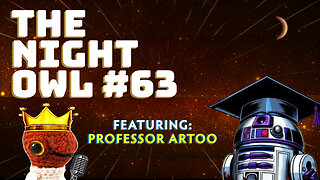Humans can’t make vitamin c
All humans are born with a genetic defect. Our livers are missing a key enzyme, xl-gulono-§-lactone oxidase, which is required to synthesize ascorbic acid from glucose. The loss of this single gene prevents humans from making their own Vitamin C. The negative mutation of the so-called GULO gene has been well studied in both human and primate genomes. If this negative mutation could be corrected, most people would no longer need to supplement Vitamin C in their diets.
Thanks to modern science, it is easy and inexpensive to correct this damaged gene by supplementing Vitamin C (ascorbic acid or one of its salts) into one’s diet.
As with any inherited malfunction, the inability to produce the GULO enzyme has negative consequences. Most people are taught to believe that they can obtain enough Vitamin C in their food, and so they supplement too little. While this ‘food argument’ generally holds true for most other vitamins, the idea that one can obtain the necessary amount of Vitamin C in food sources is countered by facts.
When compared to all of the species alive today, humans are nearly the only species with a GULO-like genetic defect.
Most living things today make their own Vitamin C and do not have to obtain it through food sources. They do this by converting glucuronic acid (C6H10O7), derived from glucose (C6H12O6), into ascorbic acid (C6H8O6). The exceptions that cannot make their own Vitamin C are guinea pigs, fruit eating bats, the red-vented bulbul bird, and higher primates, such as gorillas and humans.
-
 9:32
9:32
Dr. Nick Zyrowski
1 day agoHow To Starve Cancer Cells (Not Your Body)
4153 -
 8:52
8:52
Adam Does Movies
14 hours agoThe Penguin Episode 1 Review
229 -
 20:47
20:47
Neil McCoy-Ward
18 hours agoA SUMMARY Of The New UN Pact (I Read All 81 Pages For You...)
67810 -
 4:19
4:19
Bearing
14 hours agoAustralian Speech Is UNDER ATTACK! A Very Important Video.
1.1K15 -
 22:44
22:44
Danny Haiphong
12 hours agoPepe Escobar: Putin & China Drop Middle East BOMBSHELL on Israel, Netanyahu FURIOUS
1.19K1 -
 28:58
28:58
Science & Futurism with Isaac Arthur
22 hours ago $0.11 earnedIs Privacy Going Extinct?
5974 -
 10:21
10:21
Degenerate Jay
14 hours agoStellar Blade's New DLC Looks Amazing! Photo Mode And NieR Crossover!
2511 -
 2:02
2:02
LFA TV
16 hours agoWOMAN'S LIFE SAVED FROM DEADLY INFECTION!
3.1K1 -
 2:27:43
2:27:43
Price of Reason
14 hours agoStallone DELIVERS Knock Out Punch with Tulsa King! Agatha All Along CRINGE! Ubisoft Stock TUMBLES!
26.7K2 -
 LIVE
LIVE
WeatherNation
2 days agoWeatherNation Live 24/7
5,251 watching